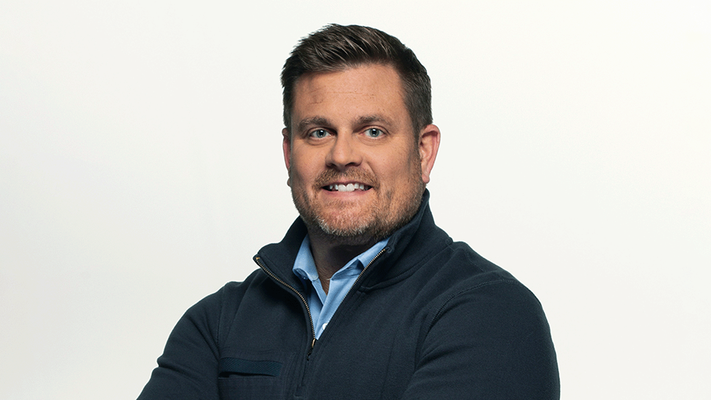
“No Way To Prevent This,” Says Only Nation Where This Regularly Happens
-The Onion
That classic headline from the satirical publication, The Onion, perfectly describes our country’s heartbreaking, humiliating, and pathetic impotence in addressing gun violence, despite widespread popular support for common-sense reform.
The latest tragedy in Uvalde, Texas, came one day after the Department of Justice issued stats on this horrible trend of active shooter events: The number of active shooter incidents increased from 30 in 2019 to 40 in 2020 and to 61 in 2021. What followed the carnage in Texas was a predictable pattern: First, “thoughts and prayers.” Next, dire warnings from the pro-gun lobby about the danger of talking about gun safety so soon after the violence, least we “politicize” the issue (ultimately, postponing the conversation simply resets the “no talk zone” when the next massacre predictably occurs). Then, (insane and inane) calls to further fortify and arm our society as the solution to the ongoing slaughter. Frankly, we find a future where our daily lives are a rolling reenactment of the “Shootout at the O.K. Corral” rather horrifying.
The NRA and their ilk have done a superb job of framing gun issues as a constitutional rather than a public health crisis. There are numerous articles describing the depths of the problems contributing to mass shootings, as well as proposed solutions that could make a meaningful difference. There are also many editorials talking about how we can and should look at gun safety and violence through the lens of a public health issue, as people are dying in a predictable and preventable way.
This is not one of those editorials. Rather, here we describe what happened when a few of us tried to do something, albeit small, by publishing a letter outlining a simple idea of how physicians might make a small impact on the gun problem. The story shows how deep the inertia and fear run in taking on this grave issue.
As medical professionals, we are bound by the Hippocratic Oath to use our powers to help the sick, as well as prevent disease whenever we can. Shortly after the Parkland, Florida, massacre in 2018, we drafted a letter that offered a very tangible step to make an impact on gun violence (you can read the letter HERE). Our idea was clear in the title: “Leveraging Medical Society Meeting Dollars to Address the Public Health Threat of Assault Weapons in the USA.”
We proposed that medical societies should only hold conferences, which greatly enrich the local communities, in states where steps toward meaningful gun safety regulation had taken place. This proposal was patterned after the successful campaign by the NCAA and other businesses in response to an anti-LGBTQ+ law passed in North Carolina in 2016. This seemed like a reasonable strategy that would have allowed the medical community to leverage monetary influence on politicians outside our individual voting domains, betting that while politicians often do not bend to even overwhelming public support, they become contortionists when financial support is in play. We sent this letter to our colleagues and, in a matter of days, quickly collected more than 900 signatures. With new confidence and high hopes, we went to find a vehicle to spread the message.
Alas, our confidence was misplaced, and our hopes were quickly dashed. The letter was treated like a parcel of nuclear waste. We first went to prestigious medical journals, newspapers, and our relevant medical societies. Newspapers generally chose to ignore us. Journals mostly opted for a form denial letter, but some suggested that the topic was either too controversial or beyond the scope of the journal’s interest, as the content of gun safety did not directly affect oncologists or their patients. (The recent murders in Tulsa, Oklahoma, would suggest otherwise.) One journal had the nifty approach of refusing to publish our letter, yet writing an editorial about it, suggesting readers address the gun issue “the right way” (meaning, exactly what?), rather than asking medical professional societies to “do the heavy lifting” (clearly, the wrong way to provoke change). Several parties found our plan sorely lacking, with reasons ranging from the practical (it would create booking problems!) to the ridiculously feeble (if Medical Society X doesn’t book a venue, Society Y will) to the frustrating defeatist (the problem is just too big to be fixed).
For a moment, consider the self-fulfilling prophesy of the last sentence: If no single solution will solve the problem, why try? What if we took the same attitude to our patients? For example, over the last 20 years, annual death rates for acute myeloid leukemia have remained essentially unchanged. Should we throw up our hands and put an end to clinical trials? Call it a day and close the research labs? Cancer is enormously complex, and progress can be slow and tedious, but there is universal societal agreement that cancer is a critical medical need that must continue to be addressed. The same is true for gun safety and violence issues.
Sadly, the responses to our letter smelled of fear and futility, most concerningly with confronting something deemed “political.” But healthcare issues have, are, and always will be political. The COVID-19 pandemic has taught us that even common-sense solutions (masking, vaccines) are assaulted, manipulated, and overtaken by cultural and political ideology. Fear leads to inaction. Inaction means more preventable injuries and deaths.
The medical community, dispatched with the privilege and responsibility to securing the health of our fellow citizens, cannot wait for the U.S. political system to address gun violence alone. Despite what can be viewed as an ongoing public medical health crisis, most medical organizations have stayed in their safe lanes. Nothing risked. Nothing gained. The victims deserve a whole lot better from those tasked with promoting and maintaining their health.
Margaret Mead said, “Never doubt that a small group of thoughtful, committed citizens can change the world. Indeed, it is the only thing that ever has.”
We tried once. We failed. We try again.
Sincerely,
Jerald Radich, MD, Fred Hutchinson Cancer Center
Daniel DeAngelo, MD, PhD, Dana-Farber Cancer Institute
Ravi Bhatia, MD, University of Alabama, Birmingham
Michael Deininger, MD, PhD, University of Utah
Neil Shah, MD, PhD, University of California, San Francisco
B. Douglas Smith, MD, Sidney Kimmel Comprehensive Cancer Center
*All opinions expressed in this editorial are those of the authors.
Email the editor with thoughts on this editorial: docwire@docwirenews.com







 © 2025 Mashup Media, LLC, a Formedics Property. All Rights Reserved.
© 2025 Mashup Media, LLC, a Formedics Property. All Rights Reserved.